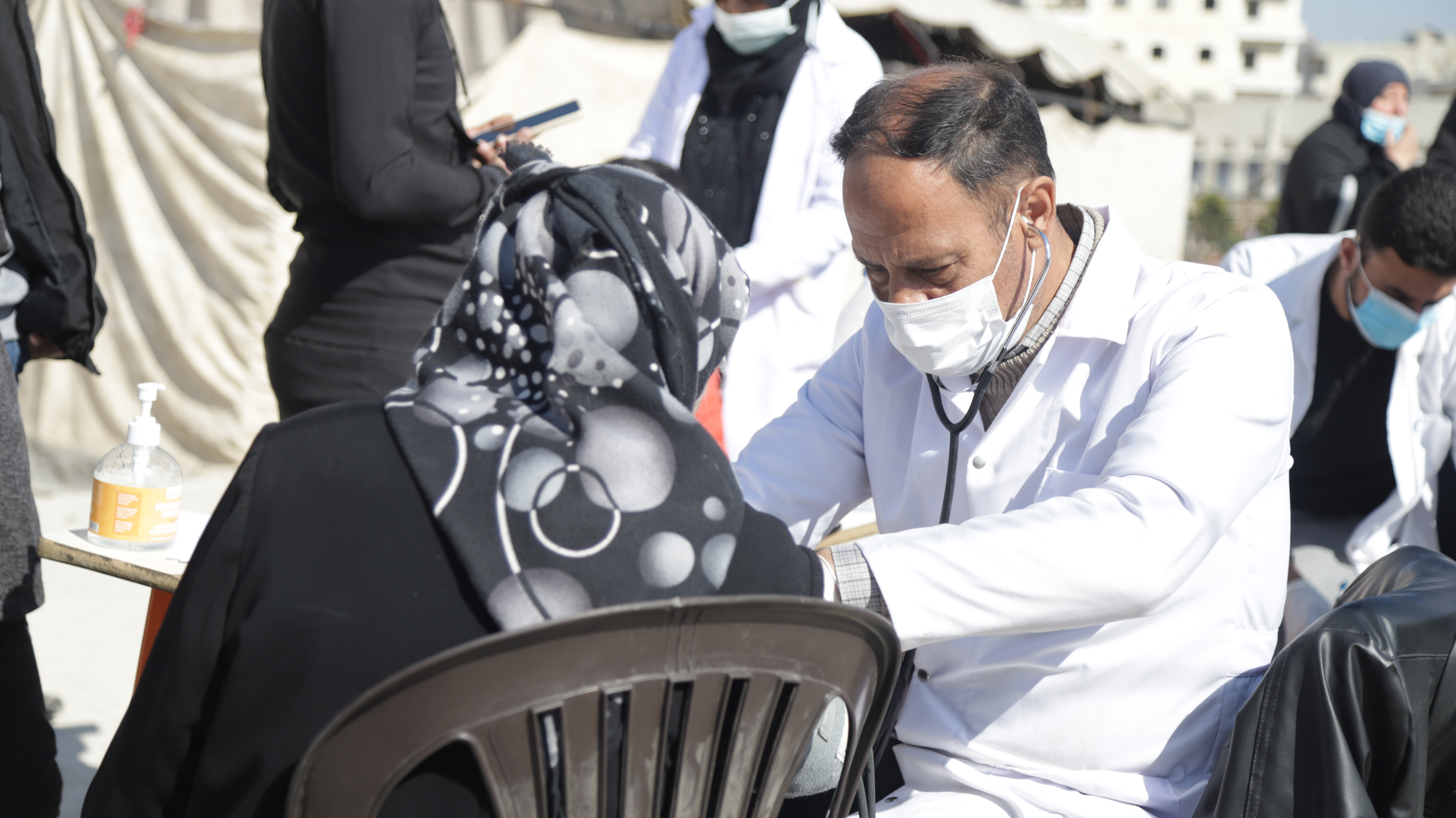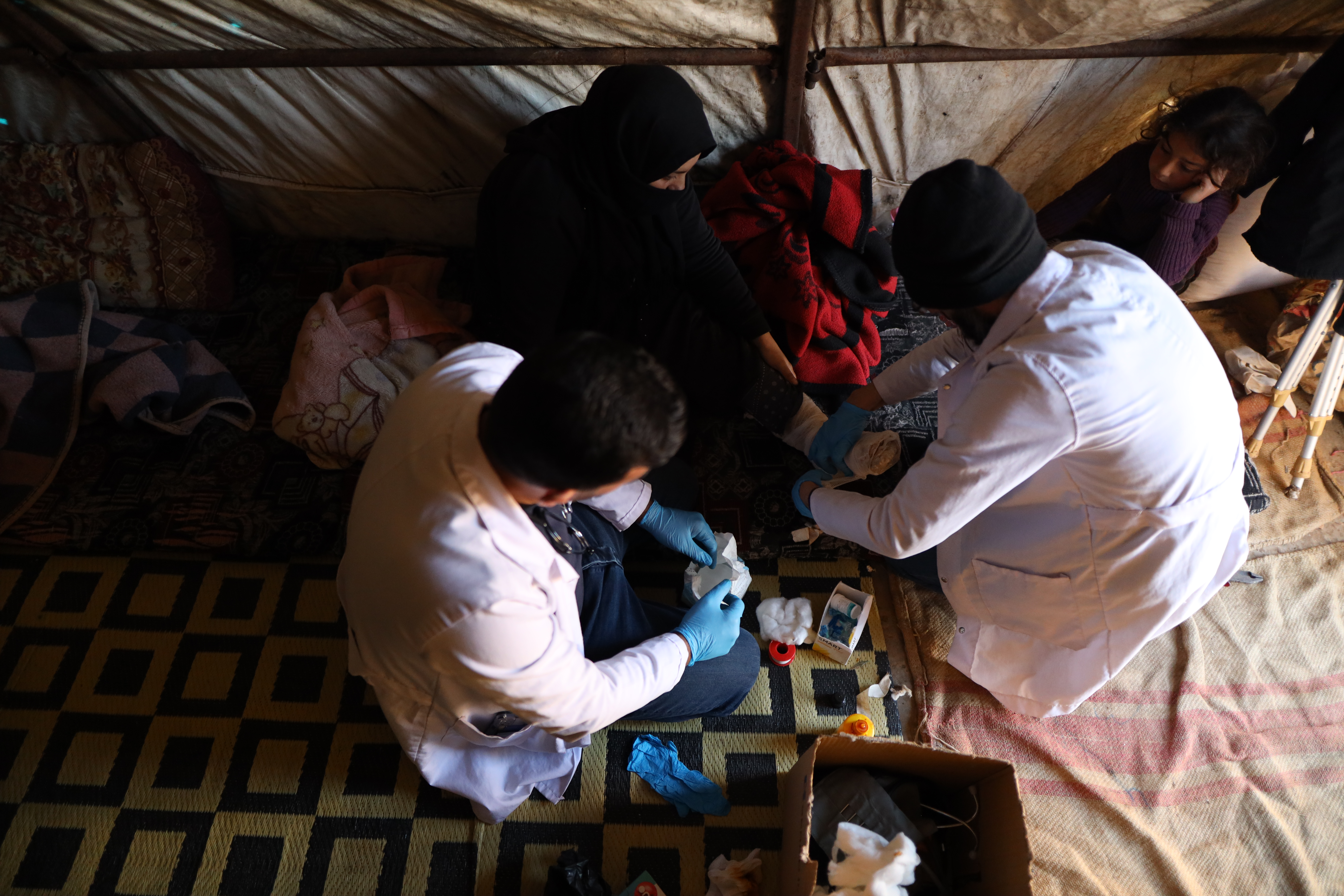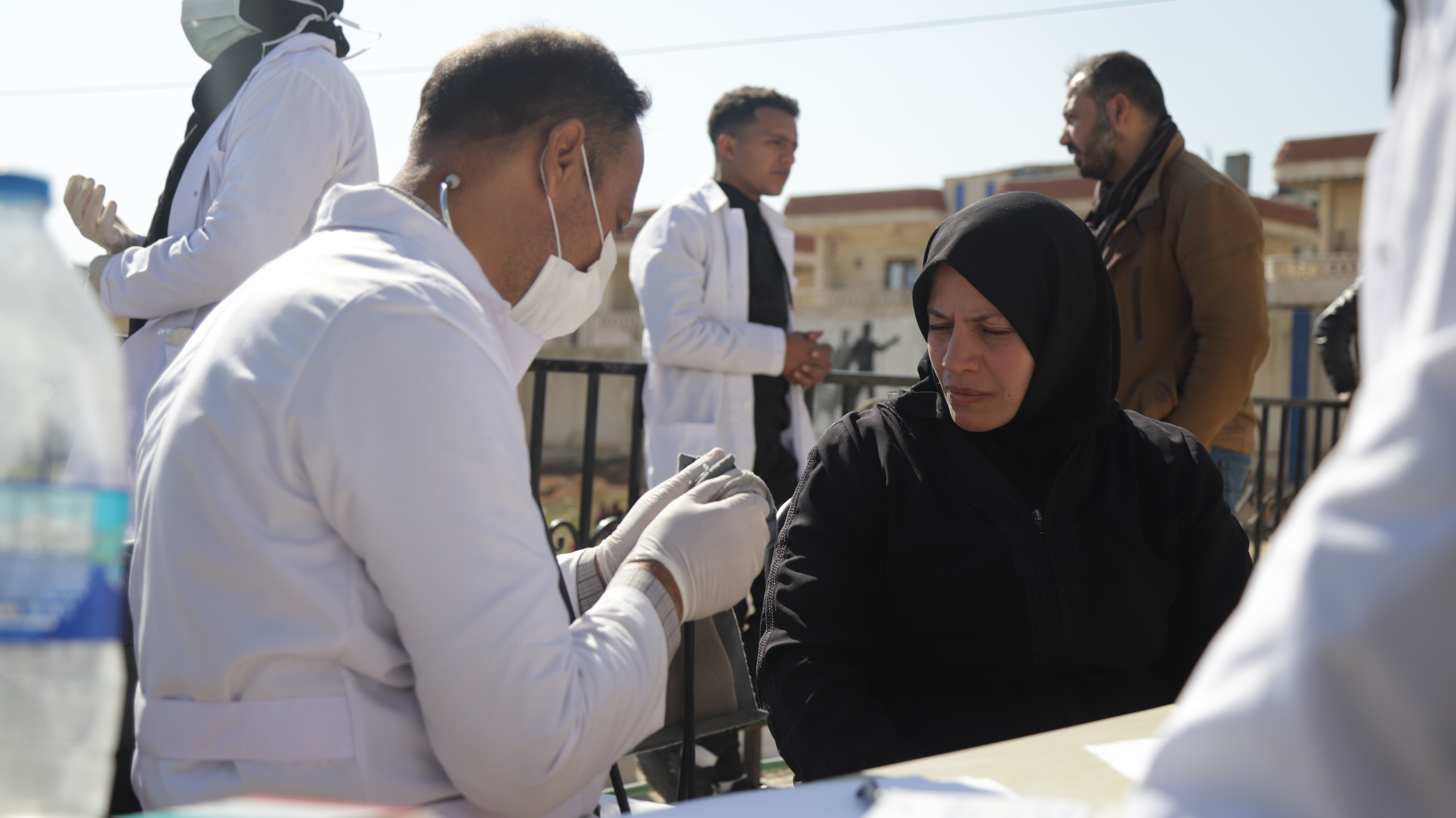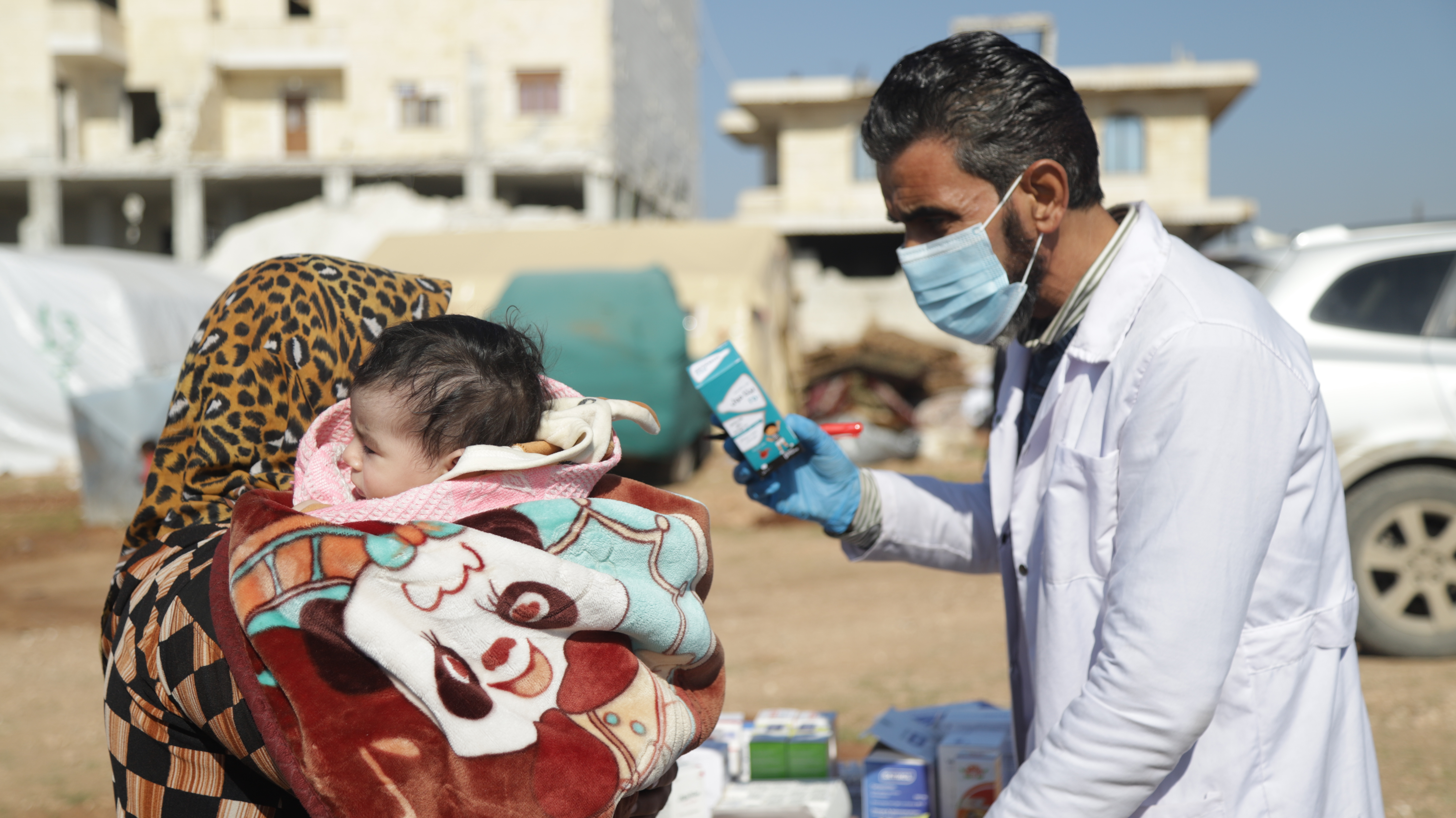As Dr Farshad prepared for another long night shift on Sunday 5th February, he expected business as usual. Working in a hospital in Idlib province, treating children and families injured by indiscrete air strikes and debilitated by the slow, wearing impact of years of deprivation and medicine shortages, that business was never easy. But he could not have imagined that as morning approached, the unspeakable horrors of years of war would play out before his eyes again, all within a few short hours.
Like so many others, Dr Farshad has made treating the abandoned communities of North-West Syria his life’s work. Leaving behind his family to live in relative safety across the border in Turkey, he works weeks-long stints at the hospital, sleeping in makeshift accommodation in the basement so he can be available to his patients at all hours. It’s a level of dedication few can imagine. But with cross-border restrictions making support and access to the area increasingly challenging, he and his indefatigable colleagues are all Syrians here can depend on.
“80% of the refugees here already live in camps, in great hardship,” says Dr Farshad. “Because of the lack of infrastructure and the situation after years of war, we must rely on overseas help, but it’s not always continuous. Imagine the situation for children, most of whom sleep rough, moving from one place to another when they’ve already witnessed so much suffering and war. And now this.”
One can scarcely imagine a more fragile community forced to face yet more anguish. But at 4.17am, as Dr Farshad prepared to check on his patients in Idlib, what little stability they had, the very earth around them, collapsed.
“We felt the earth shaking,” recalls Dr Farshad, shaking his head in despair. “We could hear windows breaking and people screaming, things were falling on to the floor. The building was swaying from left to right. There was a lot of screaming coming from the patients in the hospital and from the neighbours.”
Dr Farshad’s colleagues rushed outside, but he was frozen to the floor, believing he would lose his life in those same stark corridors where he had saved the lives of so many others. “There were strange, terrifying noises coming from the earth and from the sky,” he recalls. “I thought it was the end of the world, and that there was no escape from this moment.”
When the ground finally came to a standstill, the doctor and his colleagues rushed to find their patients, many of whom had leapt wailing from their beds. They moved those who were strong enough to the undamaged rooms and tried to calm them. Some were so afraid they walked straight out of the hospital with their IV drips still attached, refusing to stay inside for fear of the building collapsing.
Within minutes, the injured started to arrive. Many were suffering from fractures, internal bleeding and severe shock.
“Most of the people were in great distress and confused and lost, they didn’t understand what was happening,” Dr Farshad shakes his head as he describes their distress.
“They were covered in dust and injuries, in a state of total shock and terror. They were asking, what happened, where is my mother, my father, my son?”
But these patients were the less severely injured; those fighting for their lives were still trapped under piles of rubble across Idlib and beyond.
The hospital put out an urgent call to all its staff, who arrived within an hour despite many still waiting in desperate hope for news of their own homes and families. Dr Farshad himself was unable to contact his wife and children for days, knowing the damage on the Turkish side of the border where they live could be just as devastating.
As patients began to arrive with increasingly dire injuries, dug from the rubble by local rescue volunteers and family members, the hospital was overwhelmed. The staff triaged, prioritising with a numbered colour system who to treat first.
“Our facility has been dealing with catastrophes and war for at least ten years. The team has plenty of experience and it’s a war zone,” says Dr Farshad. “But this was different because this was not just the physical injuries, it was the shock and fear and the distress. It was an absolute unknown, we didn’t know what was happening; we still can’t believe it.
“There were also constant aftershocks during our work. Many patients left to stay in the open air rather than wait to heal in the hospital because they were so afraid of being inside. The medical team were so distressed and anxious, many preferred to be outside and sleep in their cars.”
After the area was hit by a fresh earthquake two weeks after the first, their trauma was compounded. “I stayed in the hospital as it happened, because there’s no other refuge for me to go to; my home in Syria was destroyed long ago,” says the doctor, sighing heavily into a thick scarf, his only protection against the bitter February cold. “Besides, if a doctor or nurse leaves, this will harm the patients; they’ll feel scared and abandoned.”
“We need so much help and support,” Dr Farshad pleads “...with food, with medical treatment, and with refuge."
“Some families haven’t even been able to find a tent to sleep in. Most thought they would go home, but the new earthquake terrified them and now they refuse to go home. People don’t feel safe, they’re sleeping outside in the open. We are psychologically damaged.”
“The team need support so they can stay. The doctors who stayed in North-West Syria, their circumstances are really bad, and now this catastrophe has happened on top of it. We ask the international community to see what the Syrian people are going through. There are five million people living in this area, in poverty and unbearable conditions. We ask for help in our suffering.”
Dr Farshad and his team are not alone. Working conditions for hundreds of his colleagues doing life-saving work across North-West Syria have never been tougher.
“Our teams are working hard in some of the toughest conditions to deliver medical assistance and psychosocial support that people desperately need,” says Valeria Gholizadeh Gajkar, Relief International’s Interim Syria Country Director. “They have been working around the clock since the earthquake struck, but like the people they are helping; they have been equally affected and need safe shelter. Some of them continue to sleep outdoors with their families, too afraid of the buildings collapsing on them.”
As they attempt to repair damaged medical infrastructure with limited access to building materials, and cope with the long-term injuries and psychological trauma wrought by the earthquakes on an already traumatised population, they will also be coping with personal loss.
“The trauma they have experienced is very real, and every new aftershock compounds it further,” says Valeria.
“They are absolutely dedicated to their work, but the situation is very difficult as they are also trying to meet the basic essentials for their families and themselves.”
As the media glare fades, doctors, nurses and support staff across this strangled region face a long, tough road ahead.
Dr. Farshad works in a health facility financially supported by European Civil Protection and Humanitarian Aid Operations.
Article written by Leila Molana-Allen, a Middle East correspondent who has reported on the Middle East and Africa for nearly a decade.
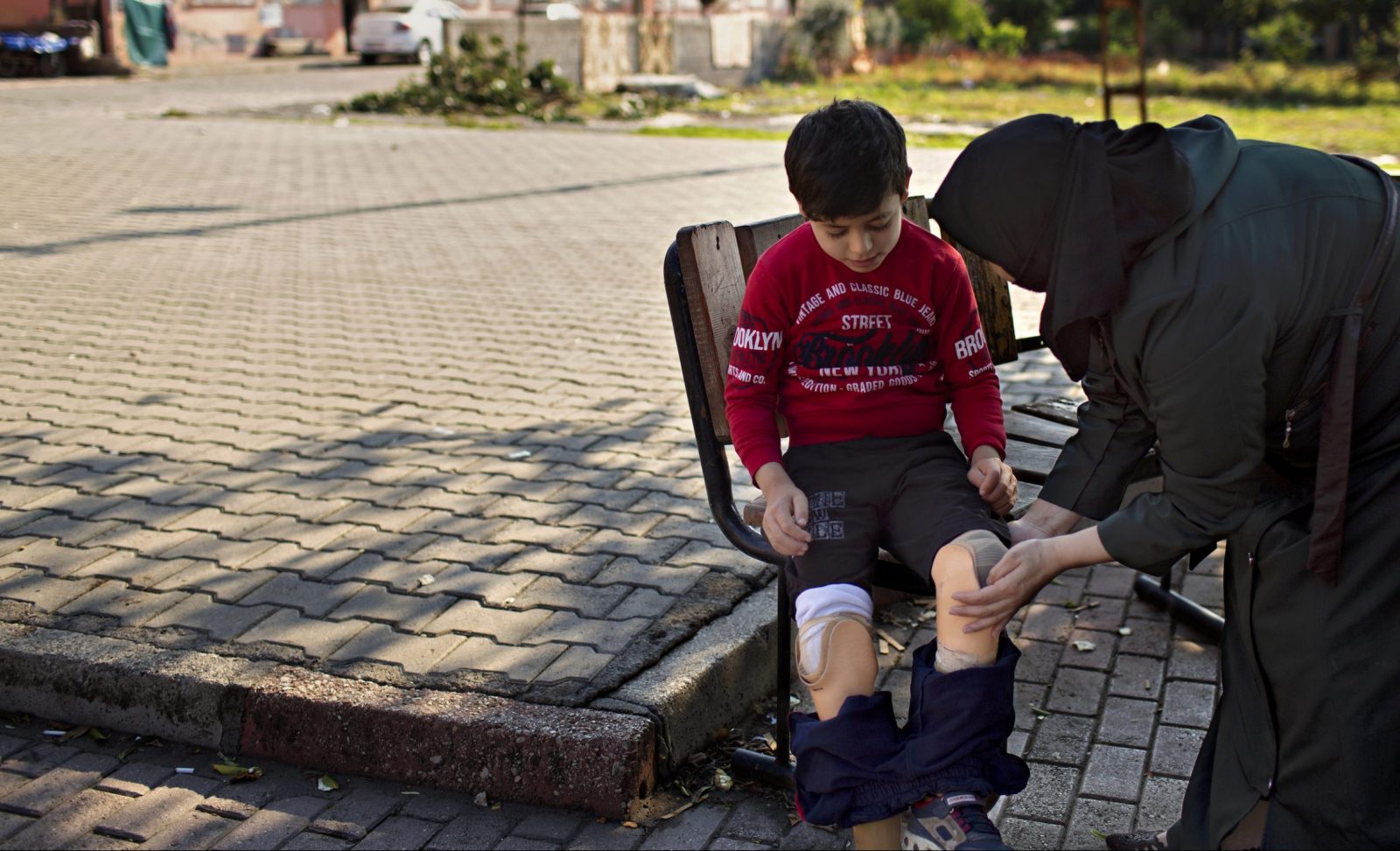
Donate to Relief International
Families around the world are facing crisis. RI is supporting them every step of the way.
Donate now to help us do it!
